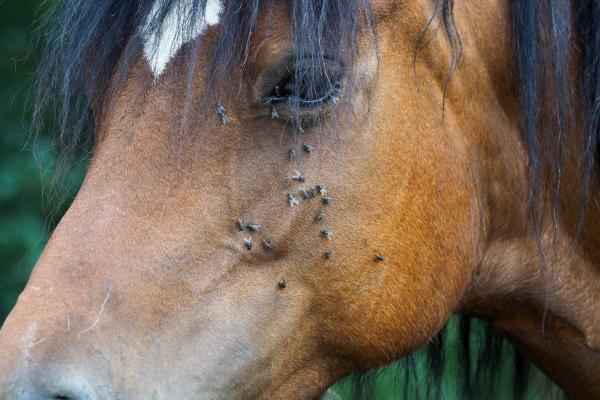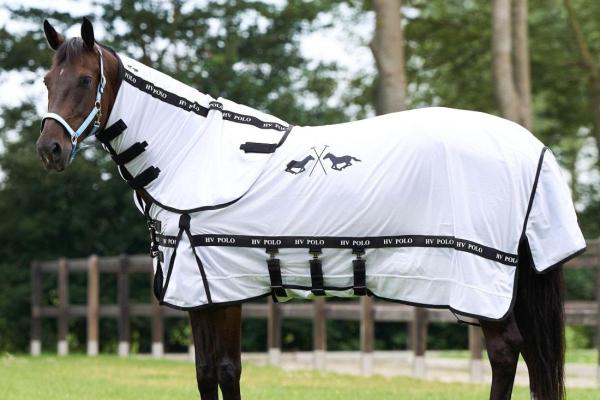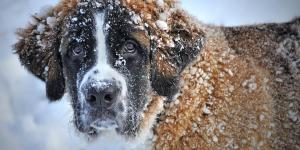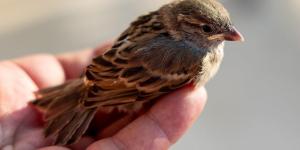What Keeps Flies Away From Horses?



See files for Horses
Flies can often swarm around horses in a way which can be very disconcerting. With their tails flapping and their heads shaking to the side every few moments, the horse can look disturbed. How much they are being agitated can be difficult to tell, but persistent irritation can lead to stress and its accompanying physical detriment. Moreover, flies can provide significant health risks such as skin conditions, eye infections and parasitosis. While it may be impossible to stop flies completely, there are ways you can protect your horse's health and well-being. Learn more as AnimalWised asks what keeps flies away from horses?
Why are flies attracted to horses?
Flies are various species of insect from the order Diptera. These insects are present all over the world, the type of species and size of population can vary incredibly. Horses are often kept in stables at night, but they are given pasture to graze and exercise. This means they can spend a lot of time outdoors in areas which are often agricultural in nature. Such areas can be quite attractive to flies.
The senses of flies are not the same as our own. They are able to register chemicals in their environment to look for food. Horses secrete sweat, urine and other substances which can be attractive to flies. If they have open wounds, these can also release compounds which attract flies. They can even feed on the moisture around a horse's mouth, eyes and nostrils.
Dangers flies pose to horses
While a horse will be able to tolerate flies to varying degrees, there is always a risk to the health of the animal. This is because flies can affect a horse's health and well-being in the following ways:
- Stress: especially if there are a lot of flies, the horse can become stressed due to the constant irritation of their buzzing and biting. Especially since the flies are attracted to vulnerable areas such as the head and face. Horses are usually kept within a limited area, so they cannot run away to escape the insects.
- Parasites: certain flies can transmit various parasites. Botflies of the family Oestridae can even bury into the skin and lay eggs for the young flies to hatch within it. Other flies can transmit different types of horse parasites such as worms.
- Eye infections: flies can feed on the tears and mucus of a horse, exposing them to various infections due to the bacteria they carry. These can be very serious for the horse. Learn more about these dangers with our article on conjunctivitis in horses.
- Skin conditions: some flies can bite the horse's skin and cause dermatitis. When there are a lot of flies, the damage to the skin can be extensive. They can also cause open wounds which can develop secondary bacterial infections leading to hair loss and other complications.
These health risks are exacerbated during summer. The increased heat provides warm and humid weather which is conducive to fly reproduction. This means we need to be extra careful during these times to protect our horses from flies. In the following sections, we look at how this can best be done with your horse.
Fly rugs for horses
One of the best and most comprehensive solutions for protecting your horse against flies are fly rugs. These are specially designed coverings which are placed on the horse to create a physical barrier against insect attack. They can be used in combination with other preventive measures to best guarantee safety from flies and other physical hazards.
Made with lightweight and breathable fabrics, they provide excellent ventilation. Their breathability means they can be used in summer when the horse is stationary. They not only protect the back, but also particularly sensitive areas such as the chest, stomach and neck. They cover virtually the entire body without restricting mobility. This comprehensive coverage results in long-lasting and comfortable protection, ideal for everyday use.
One of the greatest benefits of fly rugs for horses is that they reduce the stress and agitation caused by flies. By avoiding constant biting, the horse remains calmer. This impacts their overall well-being and behavior, both when resting in the field and during work.
Horse fly rugs are easy to put on, fitting snugly against the animal's body. They are designed to withstand everyday wear and tear. Some even include additional protection for the tail or neck, further enhancing their functionality.
Wild horses don't have the benefit of protection such as fly rugs for horses. Learn more about the different wild horse species from around the world.

Fly repellents for horses
While fly rugs provide protection when the horse is relatively stationary, they can be restrictive if the horse is involved in physical activity. This means there are times when other preventive methods may be required. Fly repellents can be sprayed over the horse's body to keep flies away. They are sold as sprays, gels or roll-on solutions which can be applies to key areas of the body to where flies are most attracted.
Some fly repellents for horse are formulated with natural ingredients, making them ideal for horses with sensitive skin. Others offer longer-lasting protection thanks to their chemical base. The key is to apply them correctly and according to the manufacturer's instructions. We should always watch out for reactions on the horse's skin, so only apply a small amount first and observe for 24 hours.
Mesh fly masks for horses
One of the most sensitive areas of a horse's head is the head, especially around the eyes and ears. Flies tend to congregate in these areas to feed off secretions. Fly mesh masks are specialized masks which can be placed over the head to protect the ears and/or eyes. The mesh allows them to see and hear, so they do not compromise their senses or cause discomfort.
Fly meshes are an excellent option to complement the use of a fly rug. They prevent insects from interfering with rest or daily training.
Protect the horse's environment
While direct protection of the horse's body is important, it is also essential to maintain environmental protections against fly attacks. We can do so by making the environment as unattractive to flies as possible, doing so without compromising the horse's well-being. For example, if the horse's paddock is dirty, this is much more likely to attract flies which can attack the horse.
Some steps to ensuring protection for horses against flies includes:
- Frequently removing manure and food scraps.
- Setting traps or sticky tape at strategic points.
- Improving ventilation and cleanliness of the stable.
Keeping your horse fly-free during the summer not only improves their physical well-being, but promotes calm. This can help improve performance for a working horse. Choosing preventive measures such as fly rugs and repellents can make all the difference to their well-being. Your horse will be more relaxed, comfortable and happy, especially during the warmer months of the year.
Discover more about protecting your horse's health with our article on the causes and treatment of swollen lymph nodes in horses.
If you want to read similar articles to What Keeps Flies Away From Horses?, we recommend you visit our Basic care category.






